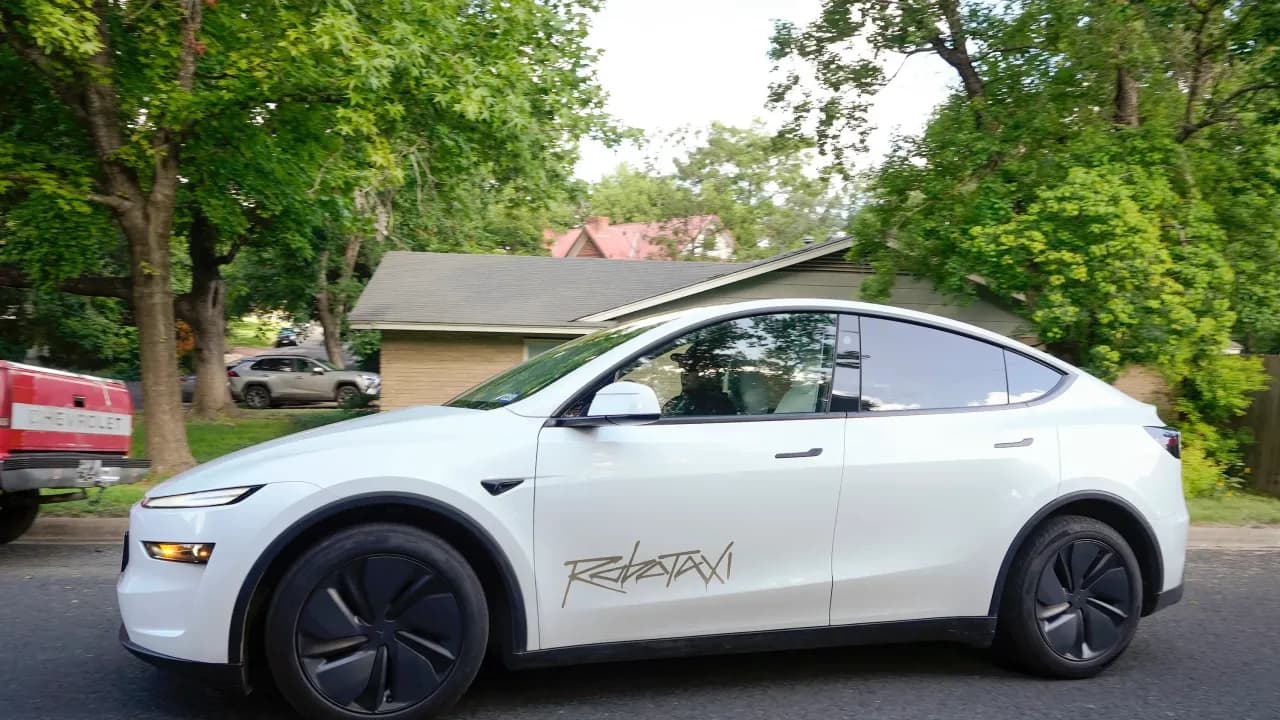ARK Invest projects Tesla’s robotaxi business could make up about 90% of its enterprise value by 2029, tapping into a $10 trillion market opportunity, even as Waymo maintains the early lead.
Waymo has taken an early lead in the robotaxi race with about 250,000 fully autonomous paid rides each week, given its first-mover advantage, but an analyst believes Elon Musk-led Tesla remains well-positioned to dominate in the U.S.
“We believe Tesla’s end-to-end vision-only AI, vertically integrated manufacturing, and data advantages position it to dominate in the US, and perhaps globally, during the next few years,’ said Ark Invest analyst Daniel Maguire in a new report.
According to Ark’s research, Tesla’s robotaxi business could account for roughly 90% of its enterprise value by 2029, capturing a significant share of what the firm projects as a $10 trillion global robotaxi market.
Safety Lead vs Scaling Push
Tesla began its robotaxi service in Austin on June 22 and quickly widened coverage. Within three weeks, Tesla’s footprint in the city outpaced Waymo’s, though its vehicles still operate with a safety monitor.
Four months after its Austin debut, Waymo expanded its service area, prompting Tesla to double its own. Both now run across similarly sized regions of Austin.
ARK pitted Waymo’s steady rollout, which has seen its first commercial autonomous rides since 2018, against Tesla’s more aggressive push to scale quickly. The firm highlighted that ride-hail accounts for just 3% of daily vehicle miles traveled in Austin, showing how nascent the market is.
Manufacturing and Data Edge
Tesla’s vertically integrated production offers another point of contrast. Ark estimated that Tesla’s Austin factory alone could build more vehicles than the city’s entire ride-hail fleet in roughly nine days.
That calculation does not include Tesla’s plans to produce 2–4 million Cybercabs annually starting next year.
On data collection, Ark said Tesla has a significant advantage. Its research said Tesla collects about 40 times more real-world driving miles each day than Waymo, and nearly 900 times more when its entire global fleet is counted.
Unlike Waymo’s geofenced approach, Tesla’s data comes from a wide range of locations, giving its AI more experience with different driving conditions. Waymo has acknowledged that data and compute are critical to autonomous performance.
“In our view, 2025 is shaping up to be the year of the robotaxi,” the Ark Invest analyst said.
On Stocktwits, retail sentiment was ‘bearish’ for both Tesla and Waymo-parent Alphabet, with message volume described as ‘low’.
Tesla shares have fallen 18.5% this year, in contrast to Alphabet’s 6.6% gain.
For updates and corrections, email newsroom[at]stocktwits[dot]com.<
